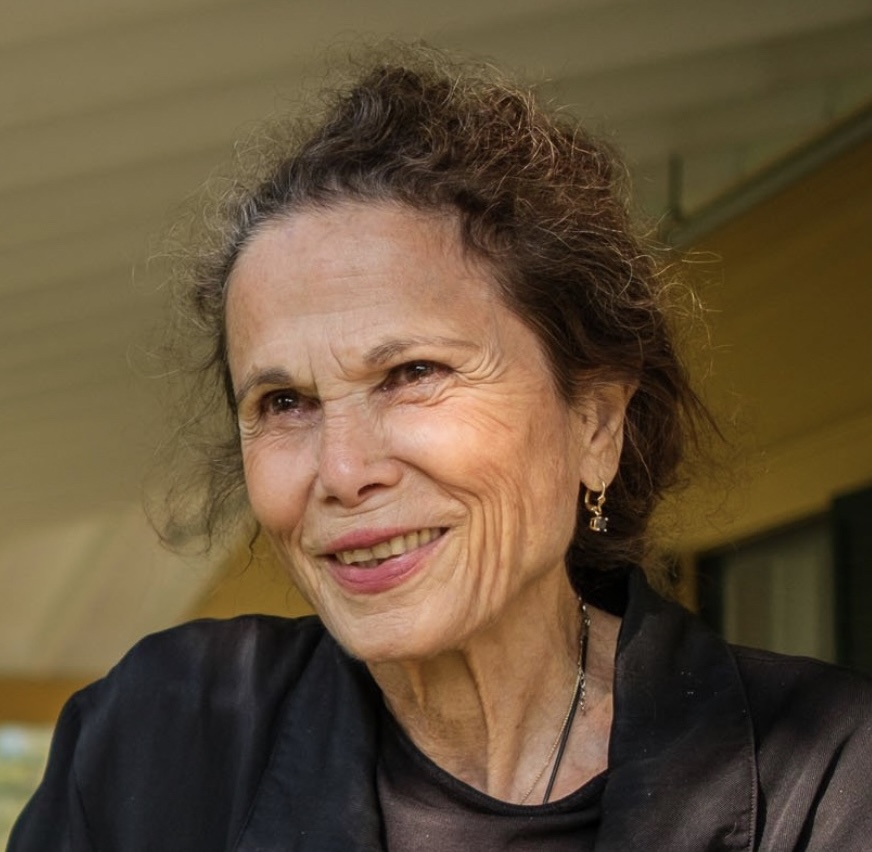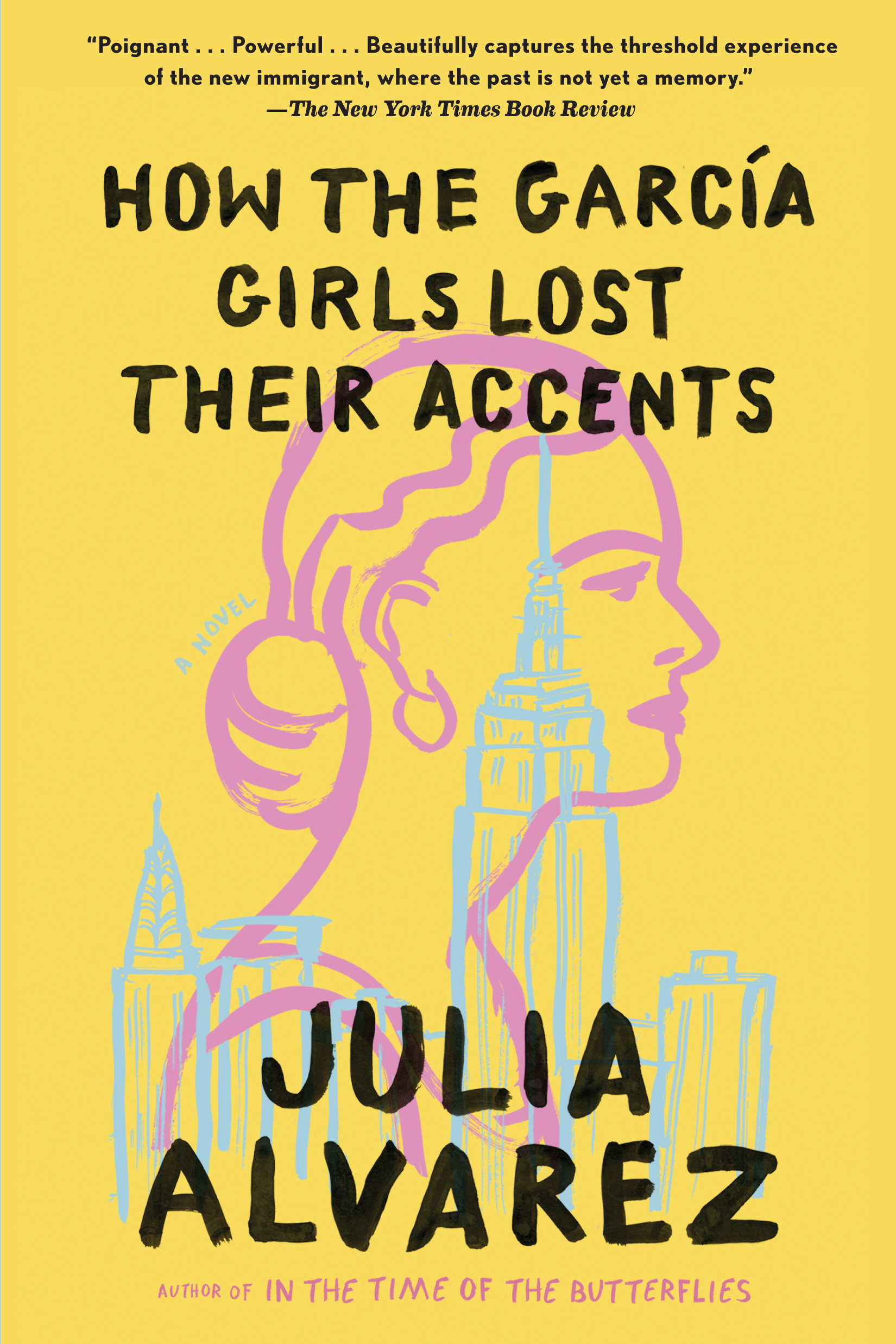Best-Selling Author Julia Alvarez to Deliver Fall Humanities Lecture
By Barbara Allison
Although she’s often referred to as a trailblazer among Latina authors, best-selling novelist, poet, essayist, and educator Julia Alvarez prefers to think of herself as tenacious instead. “That's a title that other people conveyed upon me, but it's not accurate as to how I experienced it,” Alvarez said during a recent interview.
“The only way that I can think of myself as a trailblazer is that I didn't give up when I came up against barriers. I couldn't give up. I would be giving up my soul,” Alvarez explained. “I was a liberator of the Latinas who had to tell their stories. How gratifying it was that my pushing against those barriers—along with many other writers that had long been left out of the canon—made the walls come down. It's more accurate to say it was a group effort.”

Alvarez will deliver the Francis A. McAnaney Humanities Lecture on Thursday, September 25 in the Moreau Center for the Arts O’Laughlin Auditorium at Saint Mary’s College. Alvarez comes to the Saint Mary’s community with familiarity and friendship. She met now-friend and alumna Beverly Troxler O’Grady ’63 and her late husband Robert, a Notre Dame graduate and a distant cousin of Alravez’s, when she spoke in 2007 at their O’Grady Lecture Series at the University of Notre Dame. Alvarez’s lecture this month at Saint Mary’s College will highlight the power of story to connect us, especially in these fraught times of fear and “otherness.”
Alvarez was born in New York City in 1950 and returned to the Dominican Republic with her family as an infant. She and her family fled the Dominican Republic for the United States in 1960 after her father’s involvement in the plot to overthrow the dictator Rafael Trujillo was exposed. The family resettled in Queens, New York. “We were political refugees,” she said. “We had to leave overnight and it was very traumatic and disruptive leaving everything behind. That disruption and being forced into an interior life is how I became a storyteller.”
Alvarez said that the Dominican Republic is rich in the oral tradition of storytelling. “In a dictatorship, if you write something and it gets spread, it's not wanted or appreciated. Storytelling is a safer way to encode information.” Her best-selling novel In the Time of the Butterflies is a fictionalized account of the Mirabal sisters, founders of the resistance to the Trujillo regime, and their brutal murders in November 1960, four months after the Alvarez family fled the DR.
We have to safeguard our liberty. It's not for free. Every generation has to be vigilant and fight for those things, so that we don't give in to the lesser angels of our nature. I would never have become a writer unless I had had the experience of immigration.
- Julia Alvarez
Upon her return to the US, Alvarez, who recalled being a terrible student and a poor reader in the DR, escaped into an interior world of books. With the encouragement of the Catholic sisters who taught her and the freedom to choose what she read, she began her journey as a writer. “I love stories! So that little seed was already inside me, and then it was watered into wanting to be a writer by coming to this country and becoming a reader, which I had never been.”

In her semi-autobiographical novel How the García Girls Lost Their Accents, Alvarez included a story called "Snow." In the story, the fictional Sister Zoë welcomes newcomer Yolanda into her class with a special place in front, where she can help her with her English pronunciation. Decades later, Alvarez received a letter from her real-life former principal at Saint Ignatius Loyola School, Sister Julia of the Sisters of Charity congregation, who read the story and recognized herself.
In the letter, Sister Julia told Alvarez about her father’s tears as she agreed to make space for his daughters at Saint Ignatius. “In this letter, in her little wobbly hand, she wrote, ‘I'm so glad I did, dear.’ We became pals in her last years, and I love it when things come full circle like that. That's when you reap the real rewards of being a writer. It's not the awards, not the attention, so much as those connections you make with people at a deep place.”
Alvarez published Homecoming, her first poetry collection, in 1984. By the time García Girls was published in 1991, she’d been an educator and a published poet and essayist for over a decade. She graduated from Middlebury College in Middlebury Vermont, and earned her master’s degree in creative writing from Syracuse University, Syracuse, New York.
Throughout her prolific writing career, Alvarez also taught students of all ages, discovering in the process that everyone has a story to tell. She’s led poetry workshops for all ages from children to senior citizens. Alvarez taught at the University of Vermont and the University of Illinois before becoming a professor of English at her alma mater, Middlebury College, where she still serves as a writer in residence.
Alvarez’s experience—with one foot in the world she left behind in the Dominican Republic and the other in a country that was often unaccepting, even hostile, to newcomers— became the rich soil in which her stories took root. “What I learned through story is that we're all the same. The same pains, the same joys that touch base in a human heart that is universal in all of us,” she said. “However, if all the characters that we read about are people that are not like us, we don't think it applies to us, and we feel disenfranchised. We don't feel empowered by it.”
Among the writers that resonated with Alvarez early on is fellow poet Langston Hughes. “My first inkling that there was hope was reading African American writers,” Alvarez said in speaking of representation. Both poets are featured in the anthology The American Sonnet, published in 2023 by the University of Iowa Press. “In the poem, 'I Too Sing America', [Hughes] says that someday he'll be at the big table. The fact that he was in the anthology said he made it. [Representation] is not just for the little Latina girl in the classroom, but also for the Anglo white girl in the classroom.”
Alvarez’s power of observation, her immersion in story, and her lived experience as a political refugee make her uniquely poised to speak to the current politicization. “We have to safeguard our liberty. It's not for free. Every generation has to be vigilant and fight for those things, so that we don't give in to the lesser angels of our nature. I would never have become a writer unless I had had the experience of immigration.”
The Frances A. McAnaney Lecture Series on September 25 is open to the public. Click here for event and ticket information.
September 9, 2025
